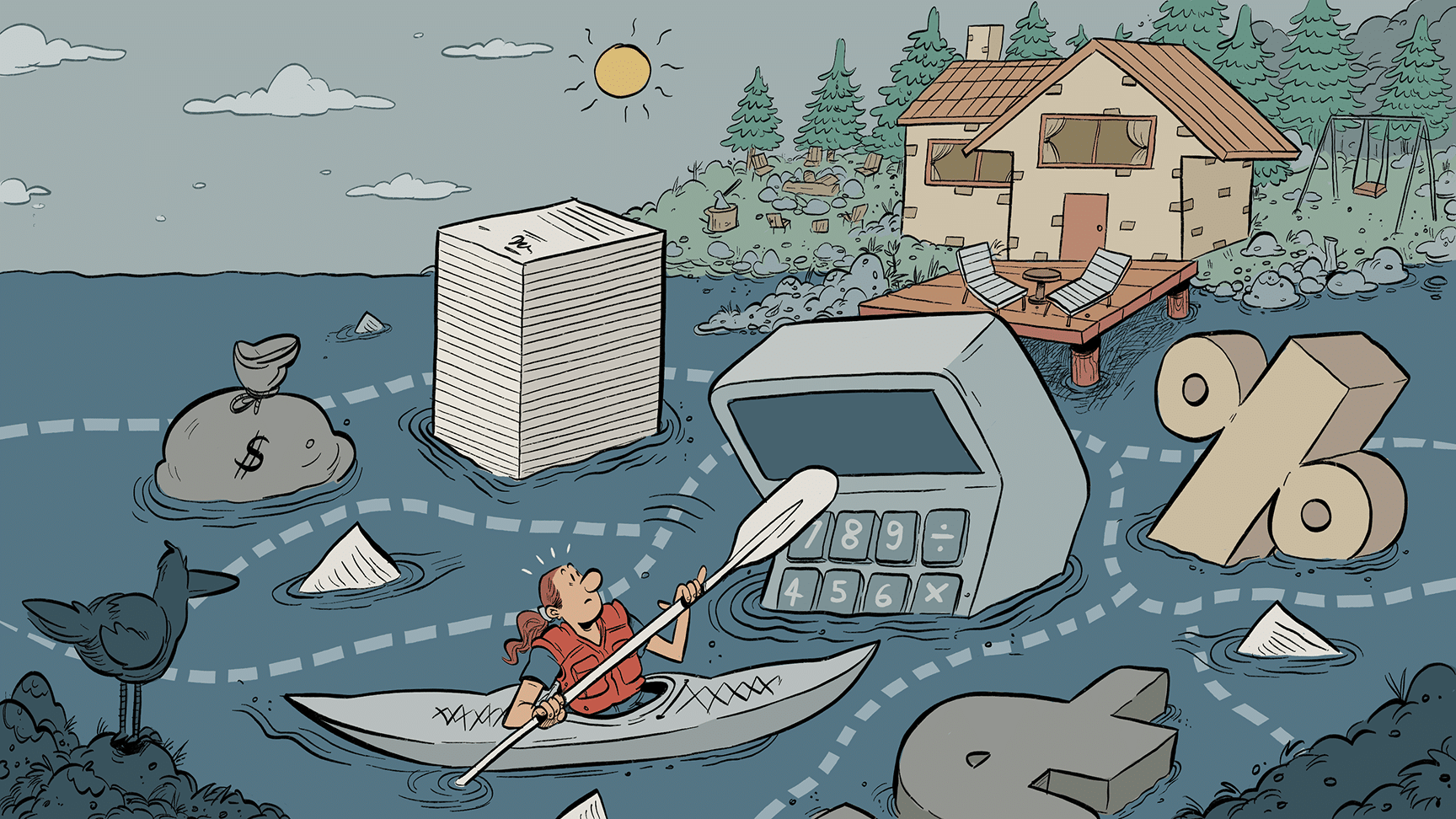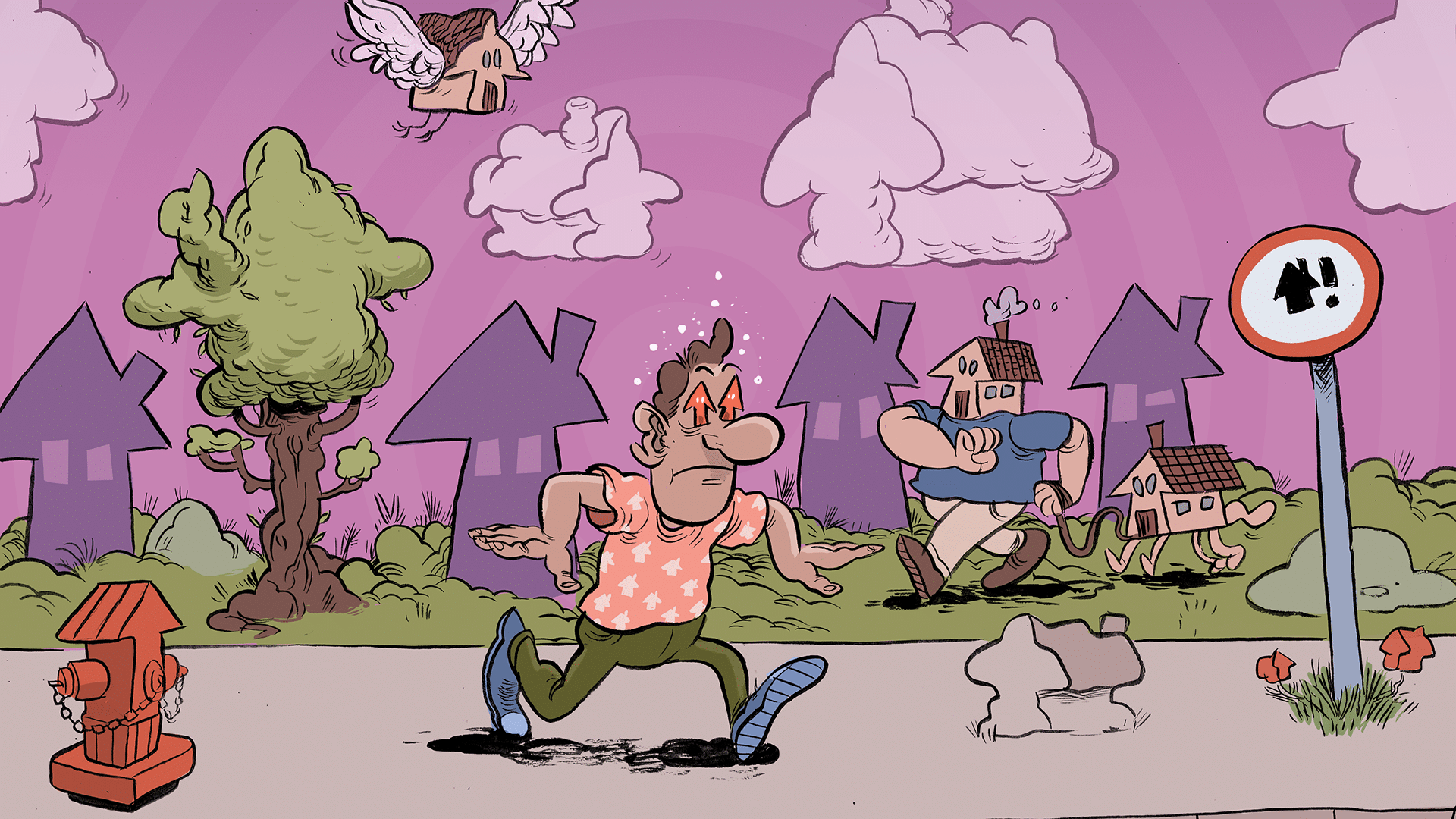
Estate Planning in practice: 6 mistakes medical professionals can avoid
Procrastination is human nature, but doctors know well what can happen when a pressing matter is left unattended. To help ensure your estate plan doesn’t leave a mess for your loved ones, we’ve compiled a list of common mistakes healthcare professionals can watch out for.
Even before the COVID-19 pandemic, doctors led incredibly busy lives. To say life is busy now would be an understatement. Whether you have a small family practice with a growing roster of patients, a demanding specialty or frequent, around-the-clock shifts at your local hospital, you may have had little time or energy to plan for your estate. After all, no one really wants to think about the end of their life. However, when you consider the possibility of leaving a messy estate for your loved ones to untangle, you may start to feel differently.
During last year’s Canadian Women in Medicine (CWIM) conference, TD Wealth surveyed more than 600 medical professionals in attendance about their financial preparedness. More than two-thirds (67%) reported having an estate plan.1 No matter where you are within the estate planning process — either at the very beginning, or somewhere in the middle — it can be important to ensure your plans are built for your unique professional and family circumstances, and won’t trigger any unintended consequences. Working with a wealth advisor is one way you can do that.
To examine a few key areas people often overlook when it comes to their estate plan, we spoke with Nicole Ewing, Director, Tax and Estate Planning, and Julie Seberras, Senior Manager of Wealth Planning Support, both at TD Wealth.
“By taking the time to think about your estate plan now, and reaching out to a wealth advisor for help, you can avoid placing the burden of an unorganized estate on your family when the time comes,” says Seberras, who has experience working with healthcare professionals.
Here are some key mistakes and omissions that Ewing and Seberras believe doctors should be aware of.
No. 1 Missing documents
Ewing says that people often think about Wills and Powers of Attorney (POA) when it comes to their estate, but forget about other important documents they’d be wise to include. “A whole host of documents should be contemplated, and care should be taken to ensure that these documents speak to each other,” Ewing says, noting that your entire life should be considered throughout this process: “That means including documents that relate to your medical practice and business of course, but also your personal circumstances,” she says.
Depending on your situation, this documentation could include Trusts, business contracts, marriage contracts, property lease agreements, registered accounts, articles of incorporation and shareholder agreements. A wealth professional may help you identify the documents you should be gathering.
No. 2 Cross-border and interprovincial differences
Family law and estate law can vary from province to province, as well as across international borders, and the nuances can be complex. Ewing says it can be easy to run into trouble when we make assumptions about these differences or neglect them entirely. For example, did you know that the rules around what constitutes a common-law relationship are different in Quebec from those in British Columbia? Ewing points out that these types of differences, in addition to those regarding beneficiaries and inheritance, can significantly affect your estate plan.
As an example, if you’ve taken part in a locum program in another province, it’s possible that inter-provincial legal differences could affect you even if the rest of your estate is tied to a single province. “For locums, you’d want to make sure you have appropriate Powers of Attorney in place, particularly if you own property in that province or are sharing a home there with a significant other,” Ewing says. “It can be really helpful to work with a wealth advisor who knows your circumstances because they will be able to identify these types of issues.”
No. 3 Failing to consider family dynamics
Every family is unique, and often people have both blood relatives and chosen families they want to provide for after they’ve passed. For example, if you have a godchild or foster child you’d like to care for, that child may not fall under the strict legal definition of family when it comes to your estate.
“Taking the time to think about who you want to care for is really important,” says Ewing. “When you say ‘all my children‘ in your Will, do you also mean the stepchildren you’ve been raising since they were toddlers? Probably. However, some of the legislation that impacts your estate might not include them automatically.”
Similarly, if you have a child who was born through surrogacy or if your child has more than two parents, the estate planning implications can get complicated.
No. 4 Mistaking equal for fair
In addition to family dynamics, family harmony should also be considered, which can include making arrangements for your spouse and children in a way that makes sense for who they are. “Many families may have one child who is very successful and one who they can’t get out of the basement,” Seberras says. “So how do you deal with that situation when it comes to your estate?” Other families may have children with disabilities who require special provisions, or situations where some of their children are still too young to inherit.
But it’s important to note, says Seberras, that “equal is not necessarily equitable.” She says that simply splitting the estate into equal divisions is rarely the best way to go. If an inheritance needs to be temporarily withheld from a beneficiary, a Trust or a plan involving the staged distribution of assets may be considered.
No. 5 Budgeting for final expenses
There’s a well-known saying: “Nothing is certain, but death and taxes.” However, people often forget there are other expenses associated with death that may also be unavoidable. “Probate is usually due right away, then you have funeral expenses, legal fees and perhaps even capital gains on the family cottage,” says Seberras. If you haven’t provided liquidity for those expenses in your estate plan, your beneficiaries may find themselves in a tricky situation.” Ewing says that there are strategies and financial products that can help alleviate some of this burden and provide that liquidity. It may help to speak to a wealth advisor to discuss your options.
No. 6 Skipping professional advice
Unless all your circumstances are carefully considered, your plans (or lack thereof) can trigger a variety of unintended consequences — particularly if certain details within your plan contradict others or fail to mitigate your tax exposure.
“For example, say you leave a registered account to your kids, and the insurance to your spouse. It sounds simple enough, but what you’ve essentially done is triggered a bunch of tax that can erode your kids’ inheritance,” says Ewing. If you had done the reverse, she says, there would be no immediate tax consequences as spouses can typically receive the registered account on a roll-over basis. “You can see how something that you might think is an easy fix, often has tax results that people aren’t aware of.”
Seberras adds that these sorts of unintended consequences are often a result of thinking about different areas of your estate plan in isolation, rather than holistically, something a wealth professional is trained to do.
Collect all the facts before making a prognosis
Of all people, doctors are most likely to understand the importance of gathering all the facts before determining the right course of action. Building a holistic estate plan that doesn’t trigger unintended consequences may be a little like arriving at the correct prognosis: All your information must be considered to do it properly.
Ultimately, Ewing and Seberras agree that perfection is the enemy of good. “You’re not alone if you’ve been putting this off,” Seberras says.” We can’t know what the future holds, but it’s never too soon to get started.”
To ensure you have a holistic estate plan that reflects your final wishes and isn’t a burden for your family to manage after you’re gone, it may help to consult with a wealth advisor.
TAMARA YOUNG
MONEYTALK LIFE
ILLUSTRATION
DANESH MOHIUDDIN
- 2021 CWIM Survey Results, TD Wealth. ↩















